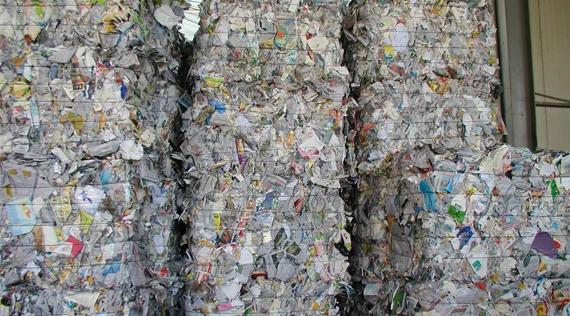
SEATTLE (Scrap Monster): Indonesia has promised significant investment over the next eight years to fight the battle against ocean plastics. The country will spend up to $1 billion every year, with the aim of reducing plastics waste by as much as 70%. Incidentally, Indonesia is the world’s second largest plastic producing nation next only to China. The announcement was made by Luhut Binsar Pandjaitan, Indonesia’s coordinating minister for maritime affairs during the 2017 World Oceans Summit held last week in Nusa Dua, Bali.
According to Pandjaitan, the country plans to achieve 70% cut in plastics volume through a well-devised action plan. The country would give priority to develop new industries that employ state-of-the-art technologies to produce alternative plastics products by using biodegradable materials such as cassava and seaweed. In addition, the government plans to discourage the use of plastics by common people by way of introduction of hefty nation-wide tax on usage of plastic bags. Also, the government funds will be allocated to organize public education and awareness campaigns to help people realize the bad impacts caused by plastics to the entire living beings and the environment in general. Meantime, experts are of the opinion that the 70% plastic reduction target set by Indonesia looks too ambitious, as many islanders lack basic understanding of the problems created by plastic waste.
The initiative is part of the Clean Seas campaign announced by the United Nations during the World Oceans Summit- a campaign that calls upon UN nations to lead the fight against microplastics and excessive use of single-use plastics such as water bottles, plastic straws, plastic utensils and bags. Pandjaitan noted that Indonesia is the tenth country to join the campaign. The campaign officials applauded Indonesia’s efforts to dramatically cut down the use of plastics. It called upon Indonesian authorities to follow the successful models implemented in other countries, with respect to taxing on plastic bags and production of bags from alternative sources. Incidentally, Rwanda and Bangladesh have imposed total ban on plastic bags. Canada has added microbead to the list of toxic substances. Further, the US and the UK has decided to ban microbeads in cosmetics starting from this year. Also, France intends to ban single-use plastic cups, plates and cutlery by 2020.
As per estimates, nearly 8 million tonnes of plastics leak into the ocean every year. Almost 60-90% of marine litter is made up of different plastic polymers. During the calendar year 2015 alone, the world produced 322 million tonnes of plastic. Our oceans contain at least 51 trillion microplastic particles in it. Studies indicate that marine litter harms over 800 marine species. By 2050, an estimated 99% of seabirds will have injected plastic.
Marine debris is a key environmental issue at the global level and a major threat to marine and coastal biodiversity. Three-quarters of all marine debris is plastic, a persistent and potentially hazardous pollutant, which fragments into microplastics that can be taken up by a wide range of marine organisms. The use of plastics continues to grow, with global production expected to rise markedly over the next few decades in order to meet demand.
| Copper Scrap View All | |
| Alternator | 0.31 (0) |
| #1 Copper Bare Bright | 3.65 (0.02) |
| Aluminum Scrap View All | |
| 356 Aluminum Wheels (Clean) | 0.71 (-0.01) |
| 6061 Extrusions | 0.62 (-0.01) |
| Steel Scrap View All | |
| #1 Bundle | 475.00 (0) |
| #1 Busheling | 495.00 (0) |
| Electronics Scrap View All | |